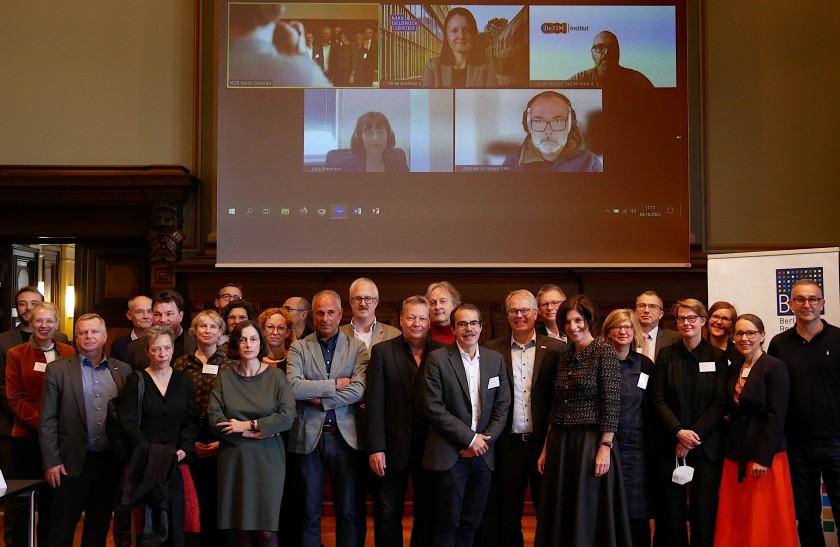For strong non-university research in Berlin

With greater impact: As an association, BR50 can promote networking in the Berlin research area even more strongly.
The non-university research institutions in Berlin will work even more closely together in the future. Their association Berlin Research 50 (BR50), founded in 2020, has joined forces to form a registered non-profit association on 4. October 2022. Together, the research institutions want to further develop and strengthen Berlin as a science location.
Representatives of the institutions gathered at the Social Science Research Center Berlin (WZB) for the official founding of the association. A five-member board was also elected. Following the founding, the association now comprises 27 research and science institutions, including Leibniz and Max Planck Institutes, Helmholtz Centres and federal departmental research institutions. Other non-university institutions in Berlin are associated with the association as partners in the network.
As an association, BR50 will support its member institutions even more in networking with each other and with other scientific actors in Berlin and represent the interests of non-university institutions.
You can find more information on the BR50 page.
BR 50 Podcast - lots of exciting research
Many societal challenges, such as climate change, are far too complex for one scientific discipline to solve alone. But together they are making progress. The BR 50 podcast gives an insight into how versatile the research of "non-university" scientists is. In two podcast episodes, listen to how the Helmholtz Centre Berlin is advancing the energy transformation in society with its research. Here you get to the podcast (in German).
(sz)
https://www.helmholtz-berlin.de/pubbin/news_seite?nid=24132;sprache=en
- Copy link
-
New Helmholtz Young Investigator Group at HZB on perovskite solar cells
Silvia Mariotti is returning to HZB as head of the new Helmholtz Young Investigator Group ‘Perovskite-based multi-junction solar cells’. The perovskite expert, who was previously based at Okinawa University in Japan, aims to advance the development of multi-junction solar cells made from different perovskite layers.
-
Hydrogen storage in MXene: It all depends on diffusion processes
Two-dimensional (2D) materials such as MXene are of great interest for hydrogen storage. An expert from HZB has investigated the diffusion of hydrogen in MXene using density functional theory. This modelling provides valuable insights into the key diffusion mechanisms and hydrogen's interaction with Ti₃C₂ MXene, offering a solid foundation for further experimental research.
-
HZB and National University Kyiv-Mohyla Academy start cooperation in Energy and Climate
Helmholtz-Zentrum Berlin für Materialien und Energie GmbH (HZB) and the National University of "Kyiv-Mohyla Academy" (NaUKMA) have signed a Memorandum of Understanding (MoU). The MoU serves as the starting point for collaborative research, academic exchange, and capacity-building between the two institutions. Actions will be taken to establish the Joint Research and Policy Laboratory at NaUKMA in Kyiv. The aim of the future laboratory is to jointly develop research and policy analysis, focusing on the energy and climate dimensions of Ukraine’s EU integration.
